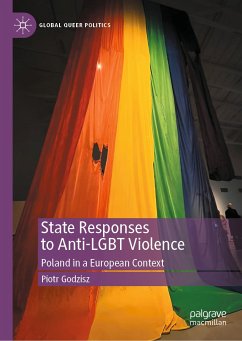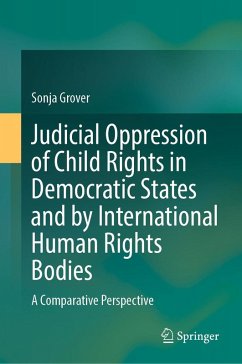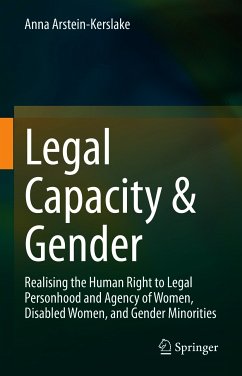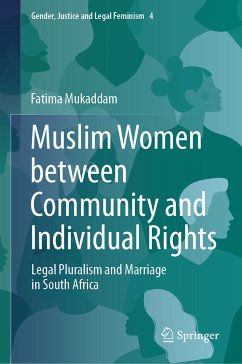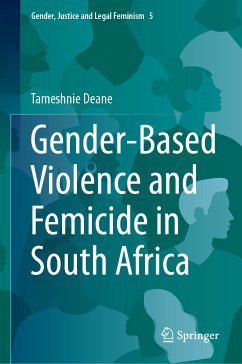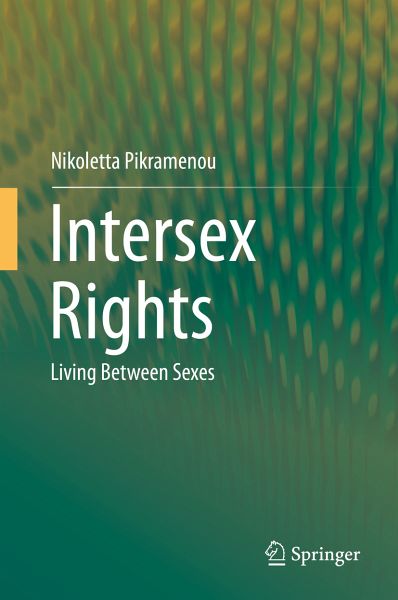
Intersex Rights (eBook, PDF)
Living Between Sexes
Versandkostenfrei!
Sofort per Download lieferbar
112,95 €
inkl. MwSt.
Weitere Ausgaben:

PAYBACK Punkte
56 °P sammeln!
This book addresses intersex rights violations and analyses intersex people's legal demands as expressed by intersex activists themselves and delivered through statements and reports issued by intersex rights organisations, the United Nations and the Council of Europe.Intersex people are born with sex characteristics that do not fit typical notions of male or female bodies, as a result of which they are stigmatised, marginalised and denied the recognition of their fundamental rights. Often, they are subjected to involuntary and harmful sex "normalising" surgeries at birth, which violate their ...
This book addresses intersex rights violations and analyses intersex people's legal demands as expressed by intersex activists themselves and delivered through statements and reports issued by intersex rights organisations, the United Nations and the Council of Europe.
Intersex people are born with sex characteristics that do not fit typical notions of male or female bodies, as a result of which they are stigmatised, marginalised and denied the recognition of their fundamental rights. Often, they are subjected to involuntary and harmful sex "normalising" surgeries at birth, which violate their bodily integrity, self-determination and informed consent, so as to comply with societal and legal norms.
Moreover, binary legal frameworks prevent them from enjoying the rights to access identification documents, start a family, or be free from discrimination in all areas including employment and sports. To elaborate on intersex violations that emanate from binary laws, this book examines the situation of intersex rights in regional jurisdictions worldwide and within the European Union in particular. In the process, it identifies current legal barriers and suggests how intersex people could be accommodated under legal frameworks and achieve sex/gender equality beyond binary definitions.
Intersex people are born with sex characteristics that do not fit typical notions of male or female bodies, as a result of which they are stigmatised, marginalised and denied the recognition of their fundamental rights. Often, they are subjected to involuntary and harmful sex "normalising" surgeries at birth, which violate their bodily integrity, self-determination and informed consent, so as to comply with societal and legal norms.
Moreover, binary legal frameworks prevent them from enjoying the rights to access identification documents, start a family, or be free from discrimination in all areas including employment and sports. To elaborate on intersex violations that emanate from binary laws, this book examines the situation of intersex rights in regional jurisdictions worldwide and within the European Union in particular. In the process, it identifies current legal barriers and suggests how intersex people could be accommodated under legal frameworks and achieve sex/gender equality beyond binary definitions.
Dieser Download kann aus rechtlichen Gründen nur mit Rechnungsadresse in A, B, BG, CY, CZ, D, DK, EW, E, FIN, F, GR, HR, H, IRL, I, LT, L, LR, M, NL, PL, P, R, S, SLO, SK ausgeliefert werden.




